By Adam Loehr
They say it takes letting something go in order to realize how much you love it. I could say that is true when it comes to lifting weights. Throughout high school, I lifted weights and exercised for sports. At the time I hated it. I mean, who would want someone with a whistle standing there telling you to run more? I didn’t realize at the time all of the positive benefits I was receiving from the exercise I was subjected to. Now that I am in college, and don’t have the luxury of practice and gym class, I have to rely on myself to exercise. I have not kept up with my fitness, and I have felt my body change because of that. However, this change has helped motivate me to learn the most I possibly can about health and how exercise benefits the body. I just took an exercise and movement science class in school. During that class, I learned more than I think I have learned in any other class to date. One of the main focuses in this class was to better understand how different types of exercise affects your body and in what way. The exercise that connected with me the most was resistance training, or lifting weights.
What is resistance training?
Resistance training is a form of training that involves resistance from something. It could be your own body weight, dumbbells, or resistance bands.
Why do I need resistance training?
- It is important to make sure you balance your exercise.
Resistance training type of exercise regimen that most people don’t realize is very important. If all you do is run and walk for exercise your body will be very aerobically fit. If all you do is lift weights your body will be very anaerobically fit. Cardiovascular and resistance training have their own set of benefits, but combined they work even better. Having a balance of activities when you exercise is how people obtain well-rounded, “good” results. I am not telling you to turn into a gym rat, but throw some resistance in your exercise routine.
- Your body is at reduced risk for many common health problems.
Resistance training helps with many things! First off, it helps with your overall muscle strength and endurance. Increased muscle strength and endurance helps you:
- Protect your joints from injury
- Improve your posture
- Maintain flexibility
- Improve and/or maintain movement and independence as you get older
- Burn more calories
- Prevent and/or control chronic health conditions like diabetes, fibromyalgia, depression, obesity, heart disease, and more
- Stress management
- Lower moderately high blood pressure
- Sleep better
- Decrease your risk of osteoporosis by increasing your bone density
- Improve your stamina
- Increase your self-esteem and sense of overall well-being
- Lifting weights will help you achieve your fitness goals.
We live in a world where the picture of health is dependent upon many factors and everyone’s idea of ideal health is different. No one is perfect. Everyone who exercises has a place that can be improved in their workout. One thing that I want for people to realize is that lifting weights will only help you achieve your fitness goals.
Let’s suppose you were a runner and wanted to run a faster mile. When you train, running will increase your cardiovascular endurance and some muscle endurance. It seems logical that running more would make you faster, but that isn’t the case. If all you do is run, there will be a point where your performance will peak, and your ability to run faster will plateau.
Now say that when you train there is resistance training involved. You doing 3 sets with 15 reps of lunges, squats, and leg presses 3 times per week to begin. Now, not only are you making your legs stronger from running, but you will also make them stronger from your strength training. In a 2005 study published by the American College of Sports Medicine, runners that combined strength and endurance training saw an 8.6% increase in their 4k time trials and ran to exhaustion 13.7% more. That’s huge!
Misconceptions about lifting weights and resistance training
One common mistake people make is thinking that because you lift weights that you will bulk up when you lift weights. That is not always the case. It all depends on how you train. If you have an intense routine where you lift heavy weight and take muscle enhancing supplements, of course you will get bigger. If you were to train less intensely and with a lower weight you will burn more fat and look more tone.
How do I maximize the benefits from lifting weights?
Along with other things such as a balanced diet you can really make the most out of exercising. It is a proven fact that someone who exercises will live longer than someone who lives a sedentary lifestyle. Even if you are older exercise can be beneficial for you. Sedentary lifestyles can cause several different health issues later in life. For example if a person’s artery walls have started to thicken from an unhealthy diet, or smoking. Exercise can help reverse some of those effects.
Get your strength training started today!
It’s okay to start with a few key strength exercises and increase the weight, resistance, or amount of repetitions as you increase your strength. However, you always want to be sure your body has the proper form and you are working the muscles you’re intending to work. Poor posture and incorrect positioning of the body during any type of exercise can lead to injury. That’s why before beginning any type of exercise program, it’s important to speak with a physician.
Click here to schedule an appointment today to create your customized exercise plan.

